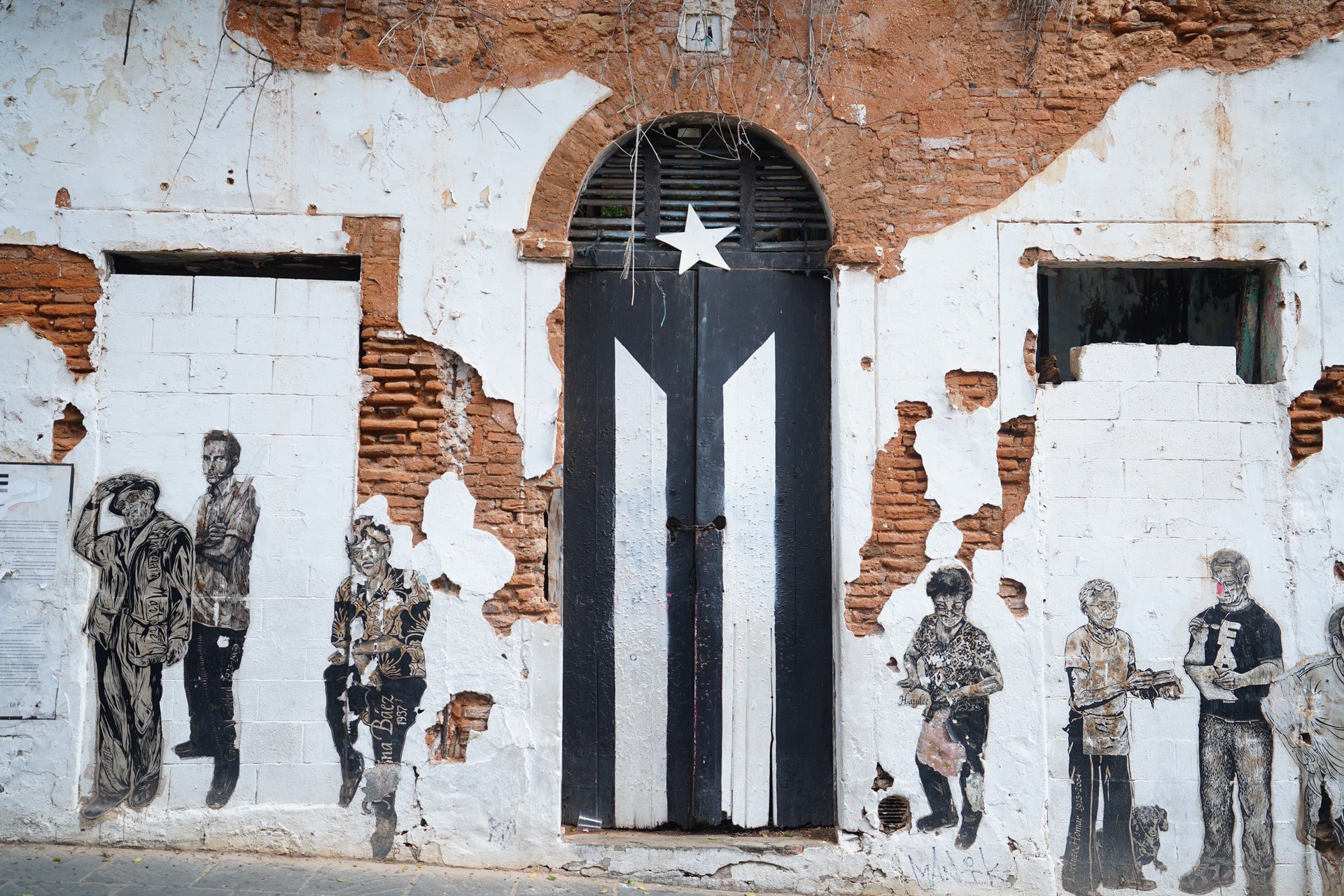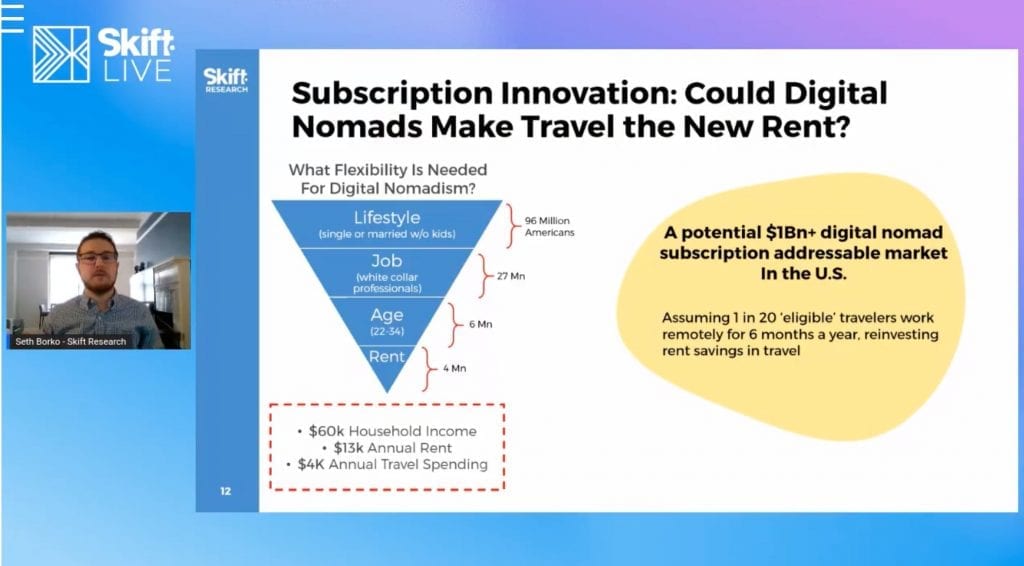Skift Take
Tourism boards have a dilemma. Cut off from their offices due to the pandemic, remote workers could be a revenue stream. But governments also have a duty to safeguard the health of their citizens.
Puerto Rico is the latest destination seeking to tap into the digital nomad market.
The U.S. territory’s tourism board launched a “desk makeover” competition on Thursday, asking what people could accomplish with two weeks working remotely there, with six winners receiving free flights and two weeks’ accommodation. It’s open to U.S. residents only.
But the launch comes as many countries are starting to put in place more, not fewer, travel restrictions.
The U.S. State Department has added at least 116 countries to its “Level Four: Do Not Travel” advisory list, this week, including the UK, Canada, France, Israel, Mexico, Germany. The U.S. Centers for Disease Control and Prevention also notes “travelers should avoid all travel to Puerto Rico.“
Yet this is a market that seems to be worth pursuing. There’s a potential $1 billion-plus digital nomad subscription addressable market in the U.S., according to Skift Research, presented at a Skift Live event on Wednesday.
Do the risks outweigh the benefits?
“Discover Puerto Rico continues to put health and safety at the forefront of all marketing efforts to ensure visitor and resident wellbeing,” said Brad Dean, CEO of Discover Puerto Rico. “This includes communicating the latest health and safety measures alongside important initiatives, like Deskover Puerto Rico, and making sure they are shared across social media channels, digital platforms and via earned media efforts.”
Dean also said Discover Puerto Rico was not encouraging travel right now, as the award trips take place August 1-15 this year. “Health and safety is at the forefront of this program — our goal is to portray Puerto Rico as a multifaceted leisure destination for remote work and extended stays, while supporting future bookings, resulting in a positive economic impact,” he added.
‘It’s just tourism’
With its relatively short two-week duration, and call for people to “share how the hues of the island will inspire them,” are campaigns like this taking remote work seriously?
For example, companies need destinations to address issues like taxes, even ring-fencing their employees. In Croatia, local journalist Ivan Brezak Brkan said his country’s own digital nomad push — the Dubrovnik Digital Nomads-in-Residence Program — had managed to anger some local entrepreneurs who felt excluded from some of the perks overseas workers were being given.
“Puerto Rico is looking at remote workers as nothing more than ‘people who work on computers from anywhere,’ just like the Croatian tourism board is doing,” he said.
“While a contest can promote the idea of working remotely in Puerto Rico, it’s not going to turn either that destination or any other into a real remote worker destination. It’s surface deep, with no understanding of giving back to the local digital community, sharing knowledge or making it easier to do business. It’s just tourism,” Brezak Brkan added.
He said countries like Estonia were leading the way in becoming business-friendly environments for digital nomads.
Discover Puerto Rico’s Dean said the island had been actively communicating the advantages of working remotely since the fall of 2020, and that its advantage was that U.S. citizens don’t need to apply for a visa, or change their phone coverage.
“Many pre-Covid barriers, including traditional office work and in-person school, have been removed and there is significant potential for people to relocate for an extended period of time. Our goal is to keep our incredible Island top of mind for new audiences who may decide to stay longer or return for a future vacation,” he added.
“We believe remote work is here to stay. Deskover Puerto Rico is a new promotional idea that has a lot of potential as we elevate and amplify our messaging through this new workplace lens. The campaign caters largely to a domestic base of travelers, however, it remains to be seen whether this, as a long-term growth strategy, will eventually expand to an international market as well.”
He added that if the campaign results in a sustainable revenue stream, clusters of remote work hubs could emerge across the island.
Despite coronavirus cases surging in Europe, Croatia has decided to go ahead with its program in Dubrovnik. It is flying in remote workers from several countries, with the six-week residency starting April 23. There were 115 applicants overall.
Will the program address some of the concerns local entrepreneurs have voiced?
“There is now a call for local participation. And representatives from the city and tourist board will be attending,” said Tanja Polegubic, founder of Saltwater. “This was always the plan, community engagement and a co-creation process.”
Correction: An earlier version of this article said the U.S. State Department stated travelers should avoid all travel to Puerto Rico. The article also includes updated comments from Discover Puerto Rico on health risk awareness and target market of its Deskover campaign.
The Daily Newsletter
Our daily coverage of the global travel industry. Written by editors and analysts from across Skift’s brands.
Have a confidential tip for Skift? Get in touch
Tags: corporate travel, croatia, digital nomads, puerto rico, remote work
Photo credit: Discover Puerto Rico said the island is a great option for travelers looking to work remotely. Jose Santiago / Unsplash

